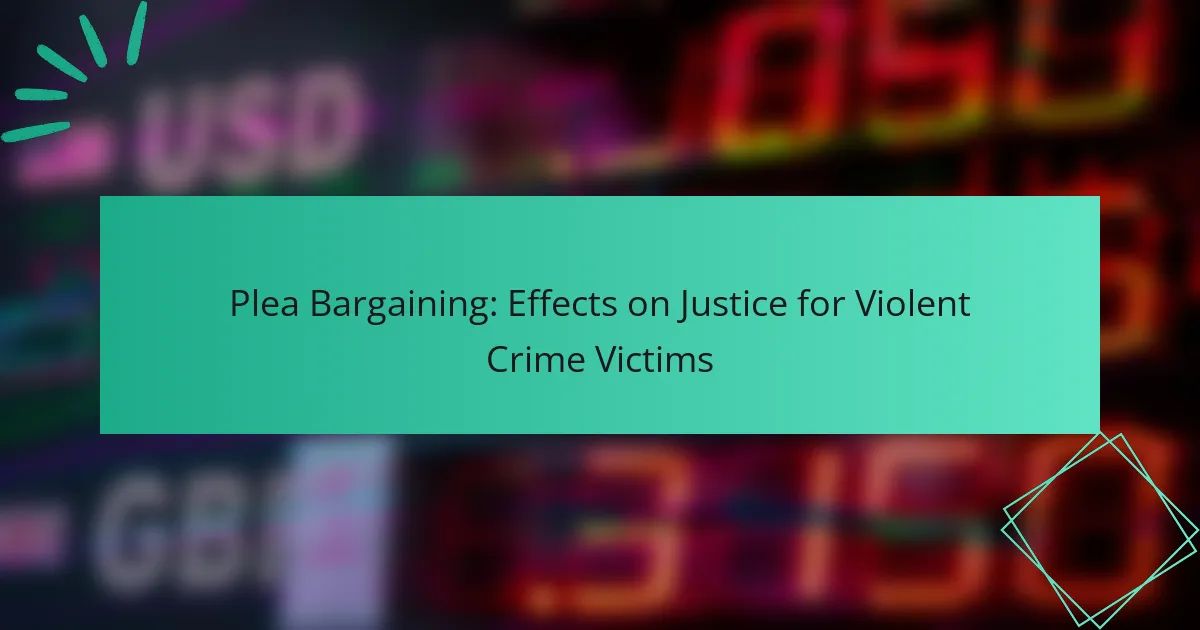The insanity defense plays a crucial role in the UK legal system, allowing defendants to assert that they were not accountable for their actions due to severe mental illness at the time of the crime. Landmark cases have shaped its application, highlighting the intersection of mental health and justice. Successful defenses often result in verdicts of not guilty by reason of insanity, leading to treatment-focused outcomes rather than traditional punishment.
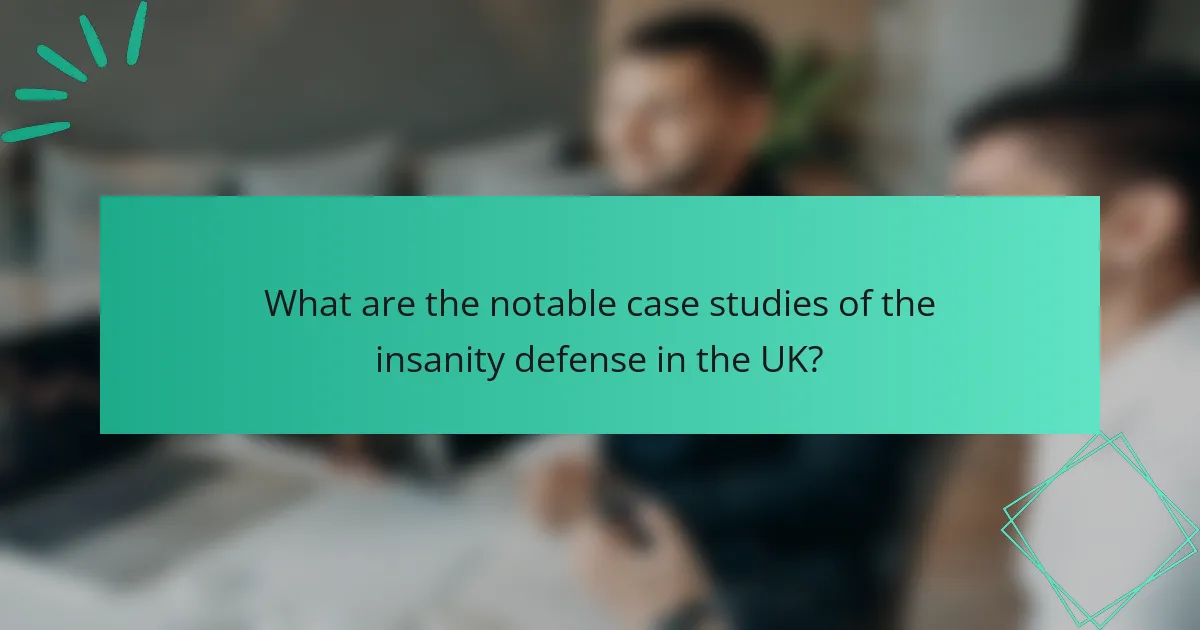
What are the notable case studies of the insanity defense in the UK?
Several landmark cases in the UK have shaped the understanding and application of the insanity defense. These cases illustrate how mental health considerations can influence legal outcomes, often leading to significant discussions about justice and public safety.
R v. M’Naghten (1843)
The M’Naghten case established the foundational test for the insanity defense in the UK. Daniel M’Naghten, suffering from delusions, killed the secretary of the Prime Minister, believing he was acting under divine instruction. The court ruled that a defendant could be found not guilty by reason of insanity if, at the time of the act, they were unable to understand the nature of their actions or distinguish right from wrong due to a severe mental disorder.
This case led to the formulation of the M’Naghten Rules, which remain a key standard in assessing insanity in criminal cases today. The emphasis is on the defendant’s mental state at the time of the crime, which has influenced subsequent legal interpretations and applications of the insanity defense.
R v. McNaughten (2008)
In the 2008 McNaughten case, the defendant was charged with murder after killing a man he believed was a child abuser. His defense argued that he suffered from a serious mental illness that impaired his judgment. The court acknowledged the M’Naghten Rules but also highlighted the need for thorough psychiatric evaluation to determine the defendant’s mental state during the crime.
This case reinforced the importance of expert testimony in insanity defenses, as mental health professionals can provide insights into the defendant’s condition. It also illustrated the ongoing challenges in balancing public safety with the rights of individuals suffering from mental illness.
R v. McGowan (2015)
The McGowan case involved a defendant who committed a violent act while experiencing a severe psychotic episode. The court found that he met the criteria for the insanity defense under the M’Naghten Rules, as he was unable to comprehend his actions due to his mental state. This case further clarified the application of the insanity defense in situations where acute mental health crises are involved.
McGowan emphasized the necessity for legal systems to adapt to the complexities of mental health issues. It highlighted the role of comprehensive psychiatric assessments in determining a defendant’s culpability and the potential for treatment rather than punishment in cases of severe mental illness.
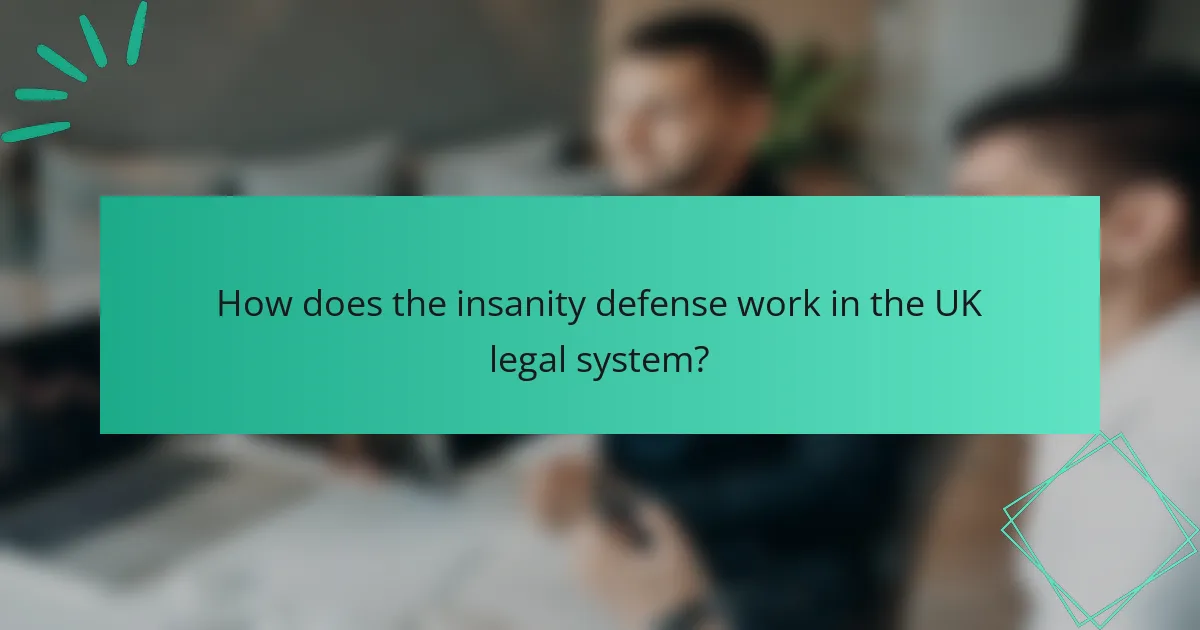
How does the insanity defense work in the UK legal system?
The insanity defense in the UK legal system allows defendants to argue that they were not responsible for their actions due to severe mental illness at the time of the crime. This defense can lead to a verdict of not guilty by reason of insanity, resulting in treatment rather than imprisonment.
Legal criteria for insanity
In the UK, the legal criteria for insanity are primarily defined by the M’Naghten Rules. These rules state that a defendant may be considered insane if, at the time of the offense, they were suffering from a severe mental disorder that prevented them from understanding the nature of their actions or knowing that what they were doing was wrong.
Additionally, the defendant must provide evidence of their mental condition, which often requires expert testimony from psychiatrists or psychologists. The burden of proof lies with the defense to establish the insanity claim, which can be challenging.
Assessment process for defendants
The assessment process for defendants claiming insanity typically begins with a thorough psychiatric evaluation. This evaluation aims to determine the presence and severity of any mental health issues that could impact the defendant’s understanding of their actions.
Following the evaluation, if the defense proceeds, the court may appoint an independent psychiatrist to conduct a second assessment. The findings from both evaluations are crucial in shaping the legal strategy and determining the likelihood of a successful insanity defense.
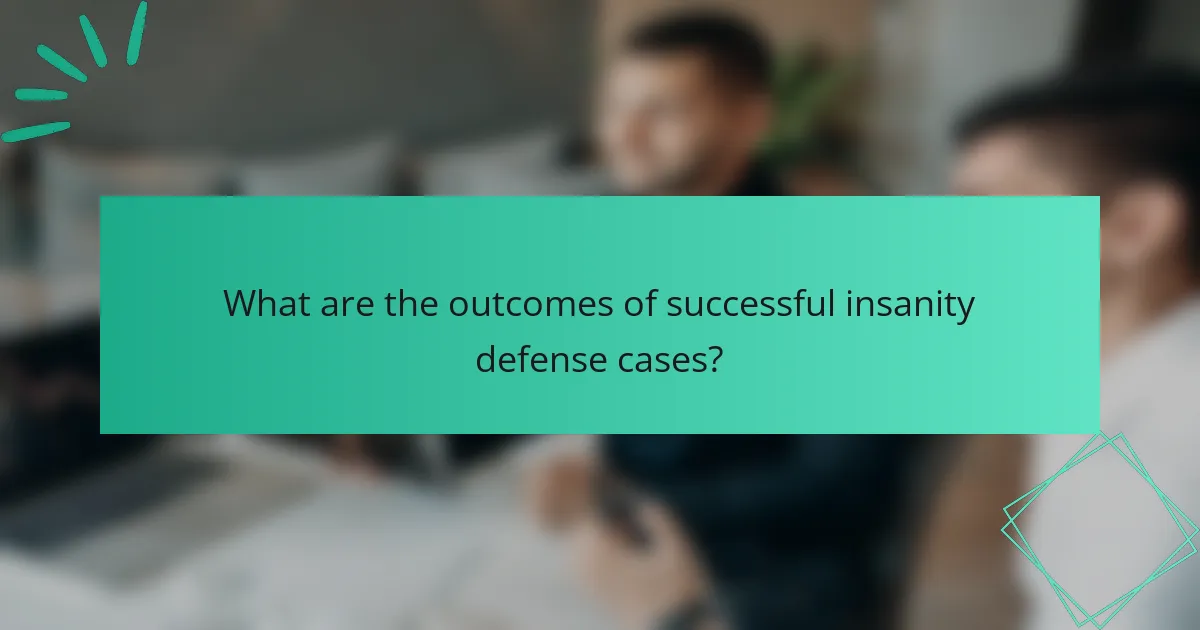
What are the outcomes of successful insanity defense cases?
Successful insanity defense cases typically result in the defendant being found not guilty by reason of insanity, leading to various outcomes focused on treatment rather than punishment. These outcomes can include hospital orders or conditional discharges, depending on the individual’s mental health status and the legal framework in place.
Hospital orders
Hospital orders are a common outcome for individuals acquitted of crimes due to insanity. In this scenario, the court mandates that the defendant be detained in a psychiatric hospital for treatment rather than serving a prison sentence. The duration of the hospital stay can vary significantly, often lasting until the individual is deemed no longer a danger to themselves or others.
During their time in a psychiatric facility, individuals receive mental health treatment tailored to their needs, which may include therapy, medication, and rehabilitation programs. Regular assessments are conducted to evaluate their progress and determine if they can eventually be released.
Conditional discharge
A conditional discharge allows a defendant to be released from a psychiatric facility under specific conditions set by the court. This outcome typically occurs when the individual shows significant improvement in their mental health and is considered low-risk. Conditions may include regular therapy sessions, medication adherence, and restrictions on certain activities or locations.
While on conditional discharge, individuals must comply with the court’s requirements, and failure to do so can result in revocation of the discharge and potential re-hospitalization. This option aims to support reintegration into society while ensuring ongoing mental health care and monitoring.
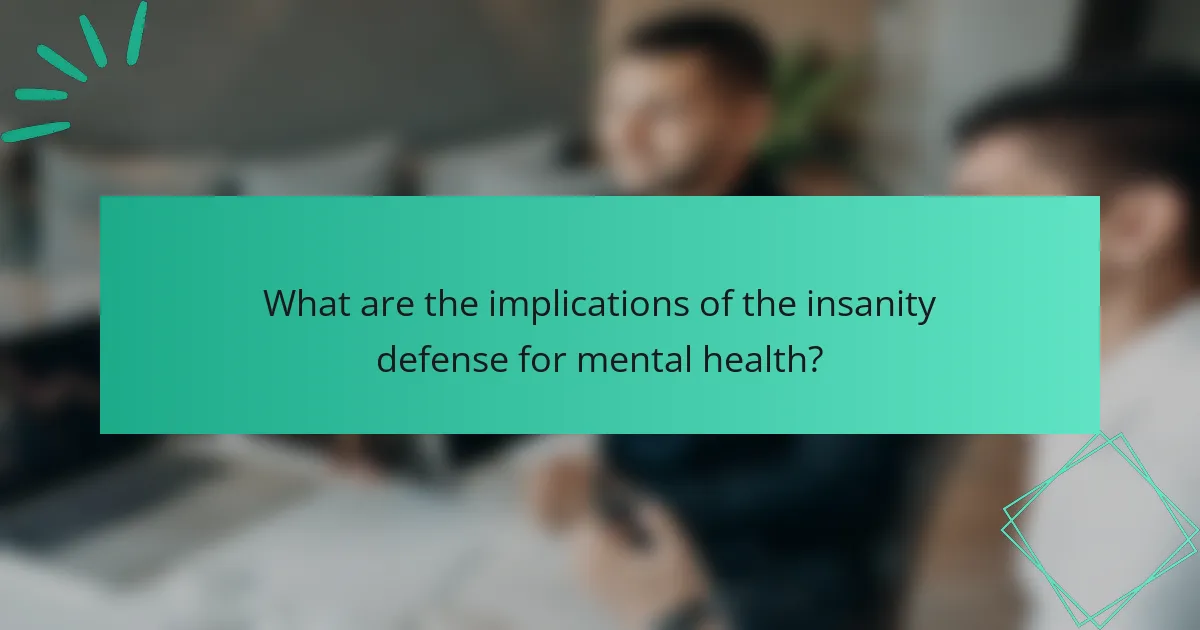
What are the implications of the insanity defense for mental health?
The insanity defense significantly impacts mental health by recognizing the role of severe mental illness in criminal behavior. It aims to divert individuals from the penal system to appropriate mental health treatment, emphasizing rehabilitation over punishment.
Impact on mental health treatment
The insanity defense can lead to individuals receiving necessary mental health treatment rather than incarceration. This approach often results in more tailored care, addressing underlying psychological issues that contribute to criminal behavior.
In many jurisdictions, individuals found not guilty by reason of insanity may be committed to mental health facilities for treatment. The duration of commitment can vary widely, depending on the individual’s progress and the severity of their condition.
Public perception and stigma
Public perception of the insanity defense is often mixed, with many viewing it as a loophole that allows offenders to evade justice. This stigma can hinder the acceptance of mental health issues, leading to misconceptions about those who are mentally ill.
Efforts to educate the public about the realities of mental health and the purpose of the insanity defense are crucial. Understanding that individuals who qualify for this defense are typically suffering from severe mental disorders can help reduce stigma and promote empathy.
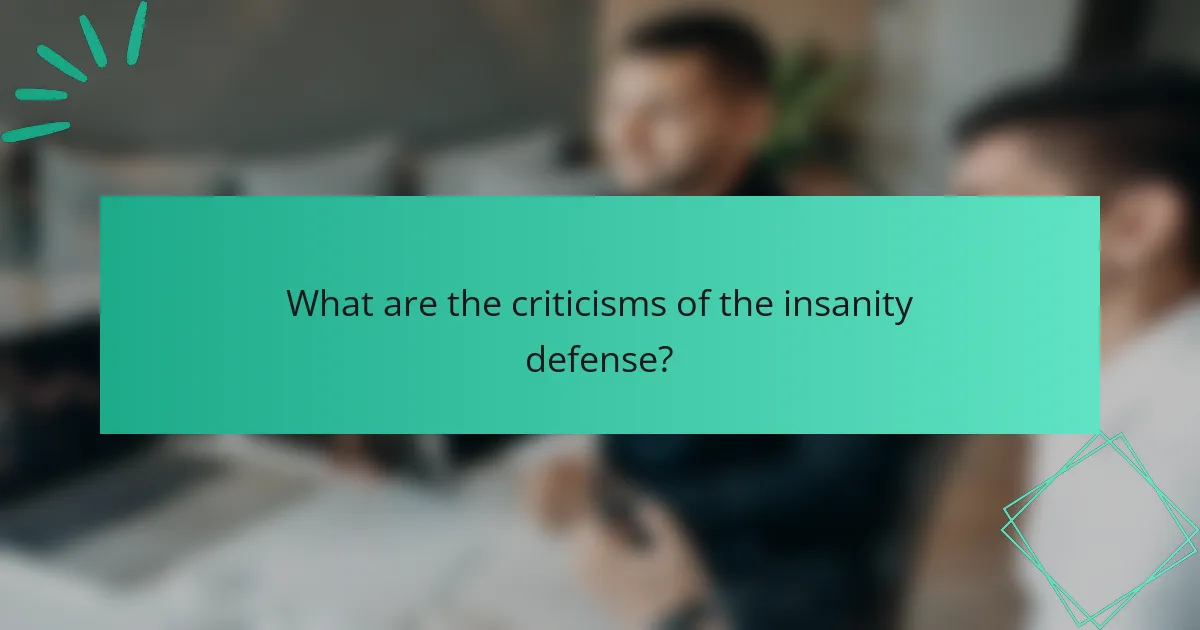
What are the criticisms of the insanity defense?
The insanity defense faces several criticisms, primarily regarding its potential for misuse and the complexities in legal interpretation. Critics argue that it can be exploited by defendants seeking to evade accountability for their actions, while others highlight the challenges in determining mental competency at the time of the crime.
Misuse of the defense
One major criticism is that the insanity defense can be misused by defendants who may not genuinely suffer from severe mental illness. This can lead to public perception that individuals are escaping punishment for heinous crimes, undermining trust in the legal system. High-profile cases often fuel this narrative, leading to calls for stricter regulations on its application.
For example, some defendants may feign mental illness to avoid lengthy prison sentences. This has prompted discussions on implementing more rigorous assessments and evaluations by mental health professionals to ensure the defense is applied appropriately.
Challenges in legal interpretation
The legal interpretation of what constitutes insanity varies significantly across jurisdictions, creating inconsistencies in how cases are handled. Different standards, such as the M’Naghten Rule or the Durham Rule, can lead to confusion and varying outcomes for similar cases. This inconsistency can complicate jury decisions and the overall fairness of trials.
Additionally, the subjective nature of mental health assessments can lead to disputes among experts, making it difficult to establish a clear consensus on a defendant’s mental state at the time of the crime. This ambiguity can result in prolonged legal battles and uncertainty in sentencing outcomes.
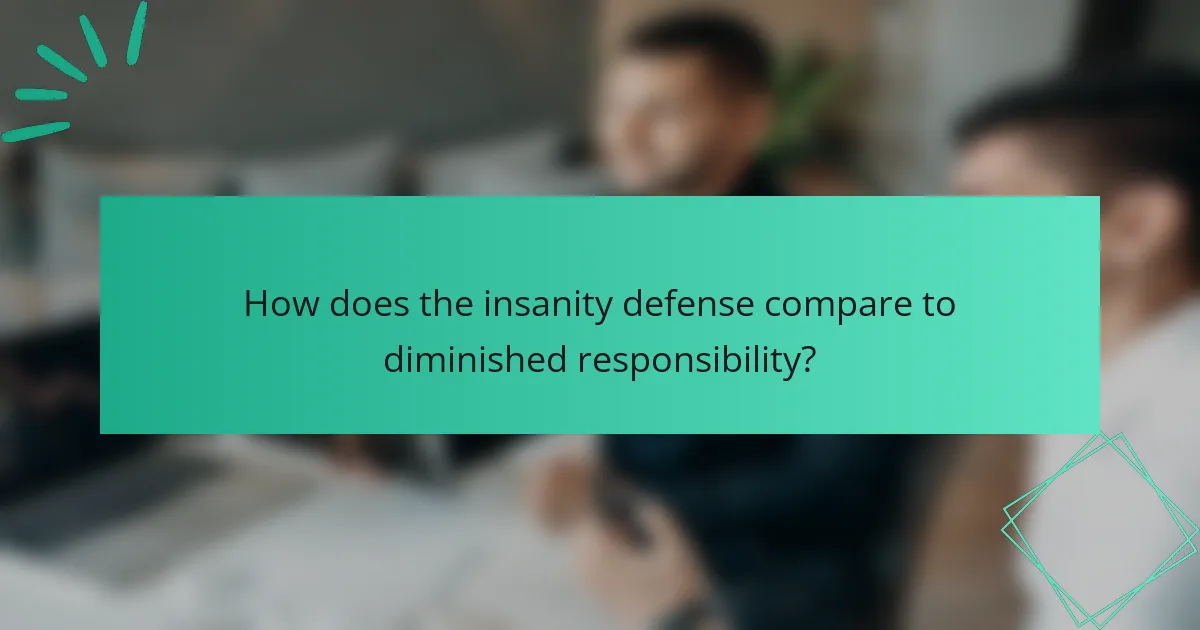
How does the insanity defense compare to diminished responsibility?
The insanity defense and diminished responsibility both address mental health issues in criminal cases, but they differ significantly in their legal implications. The insanity defense typically absolves a defendant of criminal liability due to severe mental illness, while diminished responsibility may reduce the severity of the charge based on a mental disorder that impairs judgment but does not eliminate culpability.
Key differences in legal definitions
The insanity defense is based on the premise that a defendant was unable to understand the nature of their actions or distinguish right from wrong at the time of the crime. This legal standard varies by jurisdiction but often requires a severe mental illness diagnosis.
Diminished responsibility, on the other hand, acknowledges that a defendant had some mental impairment that affected their ability to make rational decisions but does not fully excuse their actions. This can lead to lesser charges, such as manslaughter instead of murder, depending on the jurisdiction.
Case examples illustrating the comparison
One notable case involving the insanity defense is that of John Hinckley Jr., who attempted to assassinate President Reagan in 1981. Hinckley was found not guilty by reason of insanity, leading to his commitment to a mental health facility rather than prison.
In contrast, the case of diminished responsibility can be seen in the trial of the British man who killed his partner after suffering from severe depression. He was convicted of manslaughter instead of murder, as the jury accepted that his mental state significantly impaired his judgment, but did not absolve him of responsibility entirely.

What are the emerging trends in the use of the insanity defense?
Emerging trends in the use of the insanity defense indicate a shift towards more stringent criteria and increased scrutiny in legal proceedings. This reflects a growing concern about the balance between mental health considerations and public safety.
Changes in legislation
Recent legislative changes have tightened the standards for claiming an insanity defense in many jurisdictions. For instance, some states now require defendants to prove a severe mental illness that directly impaired their ability to understand the nature of their actions at the time of the crime.
Additionally, some regions have introduced time limits on the duration of confinement for those found not guilty by reason of insanity, aiming to ensure that individuals receive appropriate treatment while also addressing public safety concerns.
Influence of public opinion on legal reforms
Public opinion plays a significant role in shaping legal reforms related to the insanity defense. Increased media coverage of high-profile cases has heightened awareness and often led to calls for stricter regulations, reflecting societal fears about crime and mental health.
As a result, lawmakers may feel pressured to revise laws governing the insanity defense, balancing the need for justice with the understanding of mental health issues. This dynamic can lead to reforms that either expand or restrict the use of the defense based on prevailing societal attitudes.


